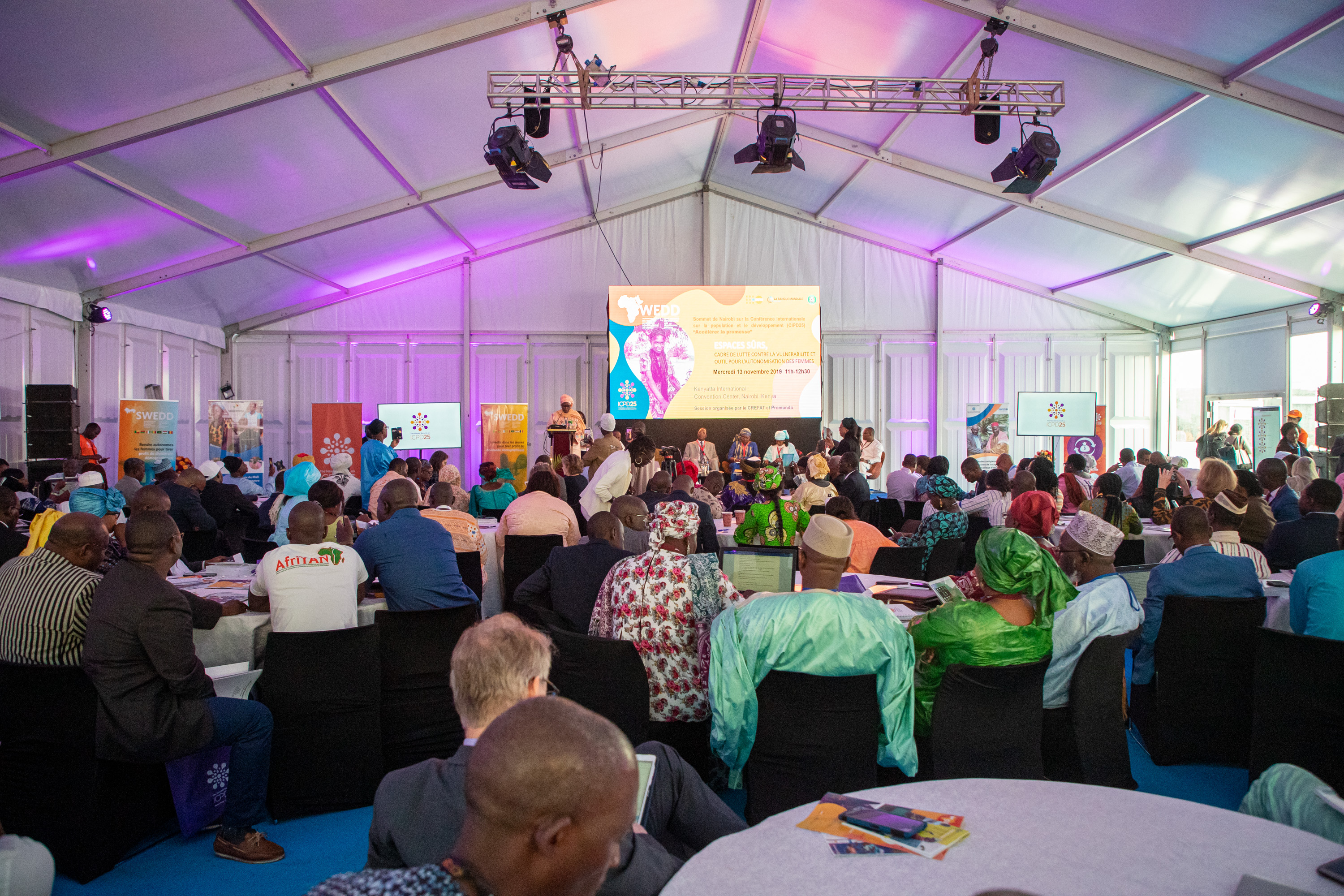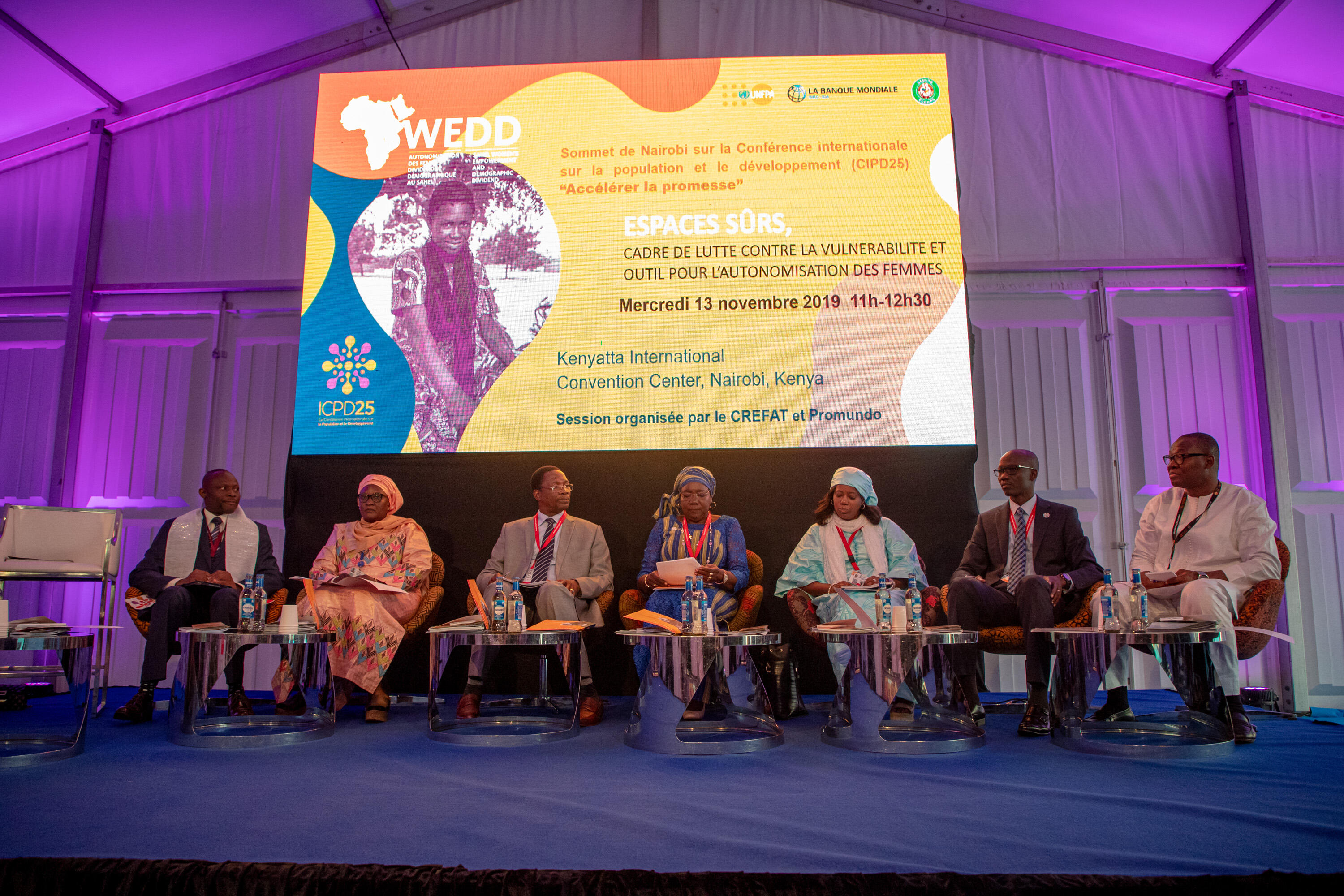A session on "Demographic Dividend in the Sahel" was held on 13 November 2019 at the International Conference on Population and Development (ICPD25) in Nairobi, Kenya. The event organized by the implementing partners of the Sahel Women's Empowerment and Demographic Dividend Project (SWEDD), CREFAT-CREG, and Promundo US, was an opportunity to exchange
on the best practices and innovative approaches for the empowerment of women and girls, an essential lever to accelerate economic growth and sustainable development.
Over 300 delegates attended the session, which was carried out in two stages. A first panel with the ministers of the SWEDD countries, Burkina Faso, Chad, Mali, Mauritania, Niger and their representatives for Benin and Ivory Coast outlined the encouraging results and successful interventions of the project in their respective countries. The second panel, with partners, focused more on strategies and tools for monitoring the demographic dividend to promote human capital.
Priority actions focus on increasing girls' access to education, training for young women, family planning programmes, along with taking cultural norms into account, and the elimination of child marriage and other harmful practices, while including men's contributions to gender equality.
In SWEDD countries, religious leaders and traditional communicators conduct community dialogue using theological and cultural arguments in favour of girls' secondary education, birth spacing and family planning, the fight against early pregnancies and gender-based violence, including child marriage and female genital mutilation. Boys and men engage through community-based interventions designed to strengthen women's empowerment support.
The results are convincing: more than 4 million women use modern contraceptive methods and the high school completion rate for girls increased from 35.1% to 40.3% between 2015 and 2018. The SWEDD project's theory of change is a key pillar to support the demographic transition in the region by 2023.
To expand this project to a continental scale, in line with one of the government's recommendations at the Addis Ababa Declaration Review in October 2018 in Accra, Ghana, applications for membership from five other countries are under consideration. Those are Senegal, Togo, Gambia, Guinea and Cameroon. They will be present at this session, which promises to be rich in sharing experiences. They will highlight successful and scalable interventions, particularly in the second phase of the SWEDD II project, which already requires more financial and technical investment from countries and stakeholders.


